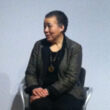Blindspot: hidden biases of good people
Description
More Details
Excerpt
Similar Titles From NoveList
Similar Authors From NoveList
Published Reviews
Choice Review
Stereotypes are, alas, alive and well. Social psychological research on attitudes reveals that hidden biases, implicit "bits of knowledge" based on social categories (e.g., race, gender, religion, ethnicity, social class, sexual orientation, disability), can subtly influence how one acts toward others. The larger problem--perhaps tragedy is a better word--is that people can be unaware of, even oblivious to, the behavioral impacts of these biases in daily life. As Banaji (Harvard) and Greenwald (Univ. of Washington), developers of the well-known Implicit Association Test (IAT), explain in this thoughtful, provocative book, even the most open-minded people (the "good people") can harbor prejudicial "mindbugs" that lead them to behave in ways misaligned with their personal beliefs. Thus, the tolerant person is possibly a secret chauvinist--or worse--because his or her perceptions of social groups are outside the realm of awareness or conscious control. Using the book's well-placed paper-and-pencil IATs, readers can learn about their own social blind spots concerning race and gender. Two thoughtful appendixes--one exploring whether Americans are (still) racist, the other examining race, disadvantage, and discrimination--support the main narrative. The authors pull no punches here. This is a powerful book. Summing Up: Essential. All readers. D. S. Dunn Moravian College
Publisher's Weekly Review
Citing the influence of "mindbugs"-ingrained judgments and biases that unconsciously influence behavior-social psychologists Banaji and Greenwald, professors at Harvard and the University of Washington, respectively, provide an accessible and persuasive account of the causes of stereotyping and discrimination. Using numerous tests and data sets, the authors demonstrate that while most Americans are not overtly racist, a majority show implicit preferences for whites versus African-Americans, which can lead to discriminatory treatment of the latter and economic and social disparities. Similar associations can be seen with regard to gender biases and ageism, to the extent that even members of these groups have internalized stereotypes. Perhaps the most interesting aspect of these results is the degree to which these mindbugs then become self-fulfilling prophecies, to the point where "people... are willing to sacrifice their self-interest for the sake of maintaining the existing social order." What arises as critical is that these behaviors often occur in ways that are subtle and unintentional, having more to do with a favoritism of one's own in-group, rather than actual animosity toward others. Banaji and Greenwald will keep even nonpsychology students engaged with plenty of self-examinations and compelling elucidations of case studies and experiments. Agent: Katinka Matson and John Brockman, Brockman Inc. (Feb. 5) (c) Copyright PWxyz, LLC. All rights reserved.
Kirkus Book Review
An examination of how beliefs are shaped by hidden bias. Banaji (Psychology/Harvard Univ.) and Greenwald (Psychology/Univ. of Washington) argue that the 4 percent divergence between Barack Obama's actual white American votes in 2008 and pre-election polls is an indication of the racial factors involved. In their opinion, had Obama "been obliged to rely only on the white American electorate, he would have lost in a landslide." The authors have collaborated since 1980 and have developed survey methods designed to reveal what they call "unconscious" or implicit cognition. The Implicit Association Test (developed by Greenwald in 1994) is one of these methods, which they and others have used to help understand the role that unconscious bias or prejudice plays in shaping attitudes. (On the Oprah Winfrey show, Malcolm Gladwell described how he took one of the tests and was shocked at the results: "I was biased--slightly biased--against Black people, toward White people, which horrified me because my mom's Jamaican.") Subjects taking the test are required to make rapid associations to reveal unconscious associations with race, gender and age. The authors discuss how, paradoxically, these associative mechanisms also confer cognitive benefits: "Stereotyping achieves the desirable effect of allowing us to rapidly perceive total strangers as distinctive individuals." Their tests have produced a "large body of data" on the relationship between automatic associations and the reflective mind. A stimulating treatment that should help readers deal with irrational biases that they would otherwise consciously reject.]] Copyright Kirkus Reviews, used with permission.
Publishers Weekly Reviews
Citing the influence of "mindbugs"—ingrained judgments and biases that unconsciously influence behavior—social psychologists Banaji and Greenwald, professors at Harvard and the University of Washington, respectively, provide an accessible and persuasive account of the causes of stereotyping and discrimination. Using numerous tests and data sets, the authors demonstrate that while most Americans are not overtly racist, a majority show implicit preferences for whites versus African-Americans, which can lead to discriminatory treatment of the latter and economic and social disparities. Similar associations can be seen with regard to gender biases and ageism, to the extent that even members of these groups have internalized stereotypes. Perhaps the most interesting aspect of these results is the degree to which these mindbugs then become self-fulfilling prophecies, to the point where "people... are willing to sacrifice their self-interest for the sake of maintaining the existing social order." What arises as critical is that these behaviors often occur in ways that are subtle and unintentional, having more to do with a favoritism of one's own in-group, rather than actual animosity toward others. Banaji and Greenwald will keep even nonpsychology students engaged with plenty of self-examinations and compelling elucidations of case studies and experiments. Agent: Katinka Matson and John Brockman, Brockman Inc. (Feb. 5)
[Page ]. Copyright 2012 PWxyz LLC


































